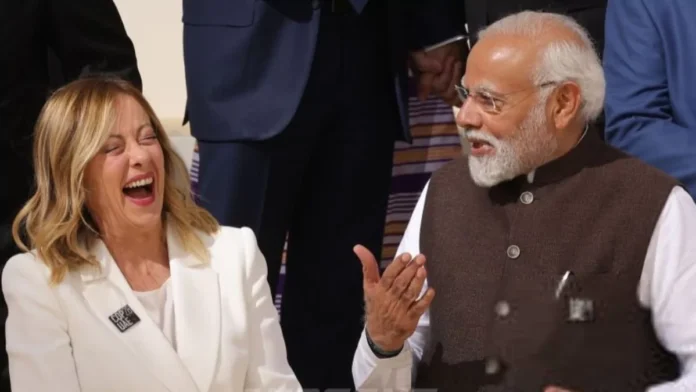India and Italy are all set to sign an extradition treaty, in an attempt to improve their bilateral relations which has been quite strained in the past. An extradition treaty is an agreement between countries allowing them to hand over criminals who have fled to another country, ensuring they face justice.
The Ministry of External Affairs (MEA) and the Ministry of Home Affairs have already approved the treaty. It is currently being examined by the Law Ministry.
Currently, India has an extradition arrangement with Italy. due to the 1988 UN Convention against Illicit Traffic in Narcotic Drugs and Psychotropic Substances. These arrangements are limited to crimes related to this Convention.
Turbulent Past of India and Italy
In the past, Italy had refused to extradite Carlo Valentino Ferdinando Gerosa, allegedly involved in the AugustaWestland VVIP Chopper Scam 2018. Carlo Gerosa was suspected of helping in a deal where bribes were allegedly given to Indian officials to win a contract to supply VIP helicopters to India.
The refusal for extradition of the Carlo, the alledged middleman, was attributed to the lack of an extradition treaty.
Back in 2012, another incident had occurred that had strained ties between India and Italy. Two Indian fishermen were returning after work near Lakshadweep island when two Italian marines, Massimiliano Latorre and Salvatore Girone, shot them down. They later claimed that they confused the two fisherman with pirates. This led to a great diplomatic row between the two countries and Italy ended up paying Rs 10 crore as compensation.
Recently, with Italian Prime Minister Giorgia Meloni’s visit to India in early 2023 and subsequent visit during G20, the bilateral relations between India and Italy have been believed to improve considerably. Prior to this, a Mobility and Migration Partnership Agreement was also signed between the two countries.
Currently, over 2 lakh Indians live in Italy so this bilateral treaty holds significant implications for the citizens of both the nations.
